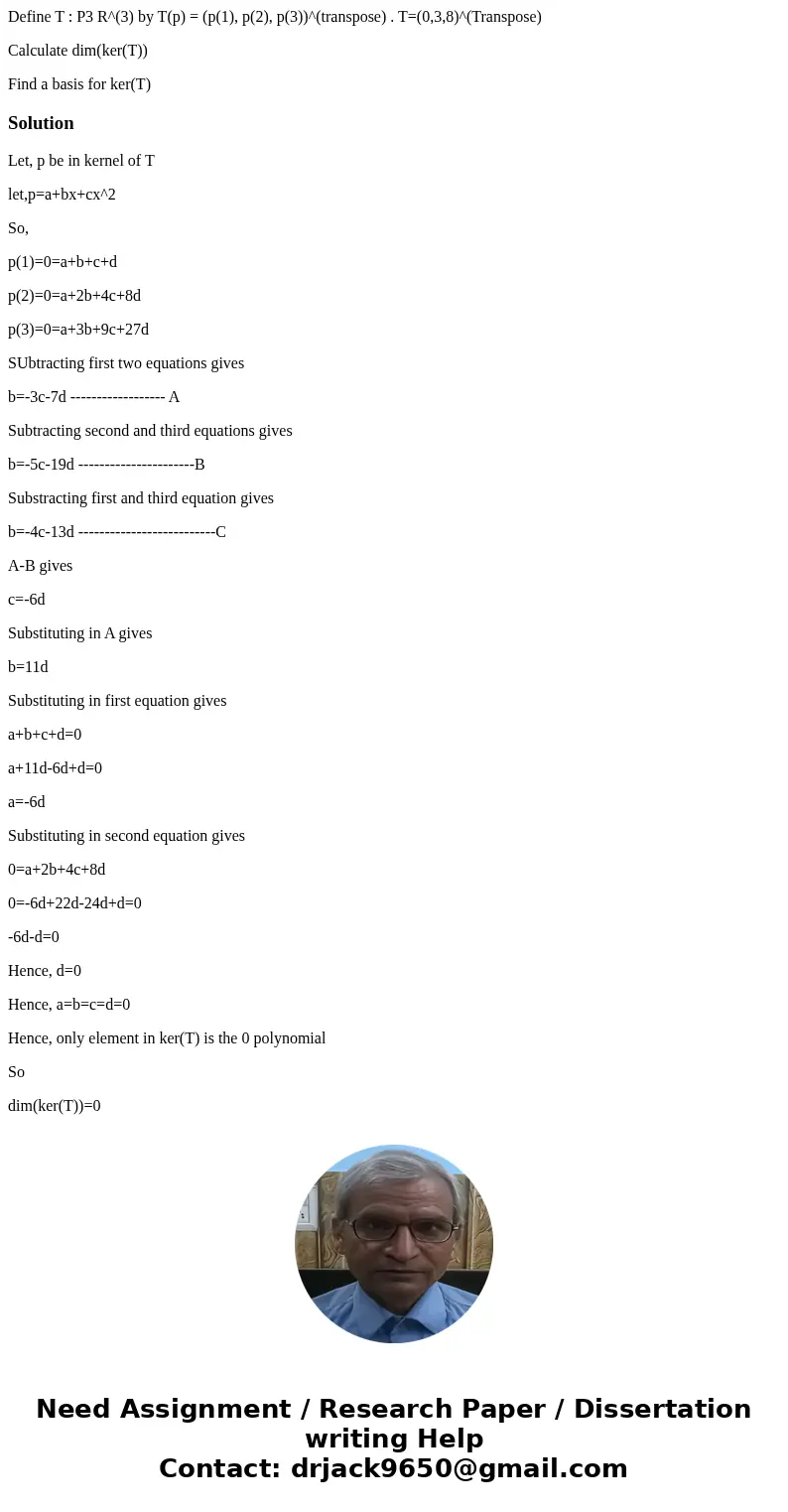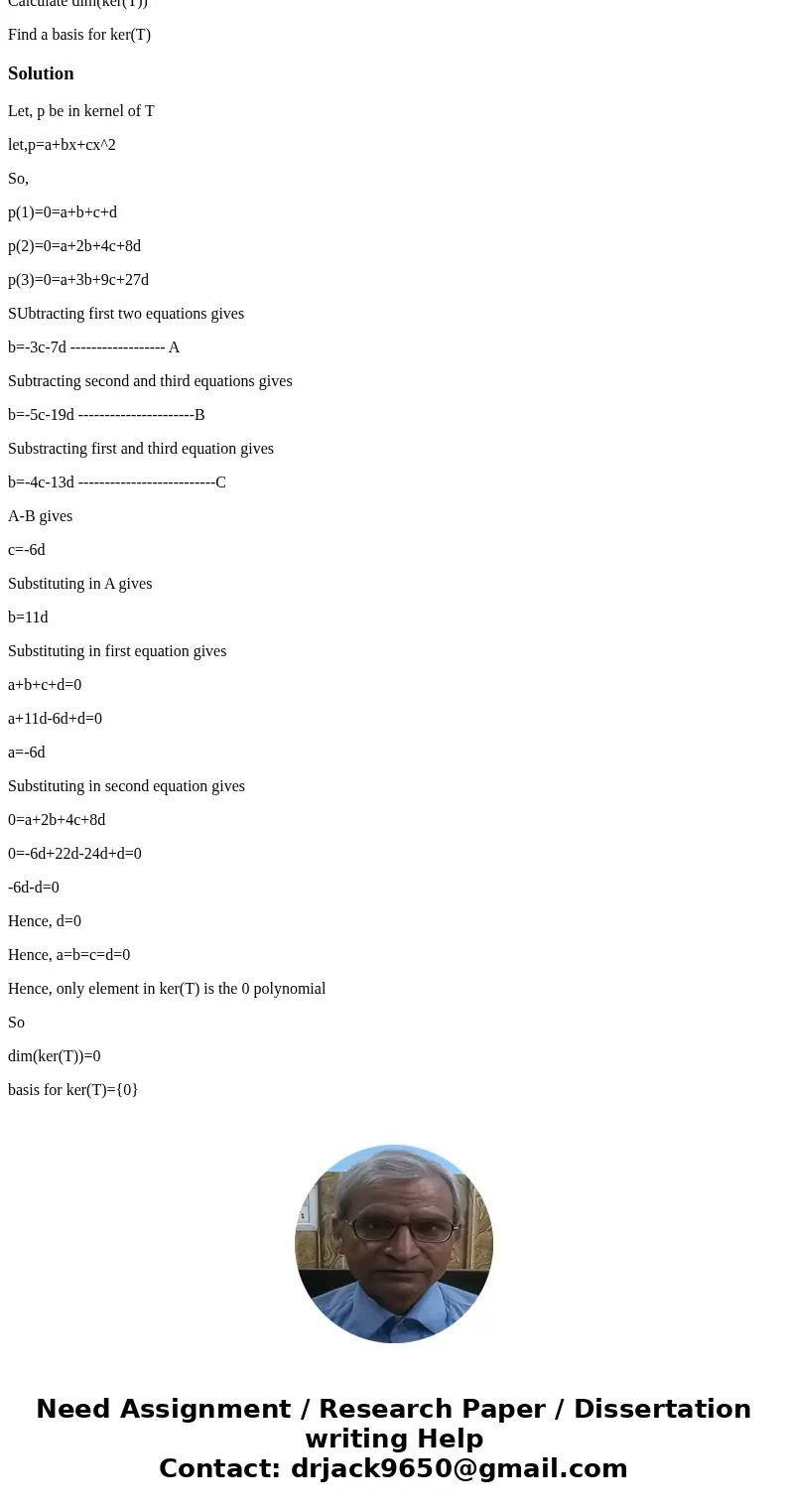Define T P3 R3 by Tp p1 p2 p3transpose T038Transpose Calc
Define T : P3 R^(3) by T(p) = (p(1), p(2), p(3))^(transpose) . T=(0,3,8)^(Transpose)
Calculate dim(ker(T))
Find a basis for ker(T)
Solution
Let, p be in kernel of T
let,p=a+bx+cx^2
So,
p(1)=0=a+b+c+d
p(2)=0=a+2b+4c+8d
p(3)=0=a+3b+9c+27d
SUbtracting first two equations gives
b=-3c-7d ------------------ A
Subtracting second and third equations gives
b=-5c-19d ----------------------B
Substracting first and third equation gives
b=-4c-13d --------------------------C
A-B gives
c=-6d
Substituting in A gives
b=11d
Substituting in first equation gives
a+b+c+d=0
a+11d-6d+d=0
a=-6d
Substituting in second equation gives
0=a+2b+4c+8d
0=-6d+22d-24d+d=0
-6d-d=0
Hence, d=0
Hence, a=b=c=d=0
Hence, only element in ker(T) is the 0 polynomial
So
dim(ker(T))=0
basis for ker(T)={0}


 Homework Sourse
Homework Sourse